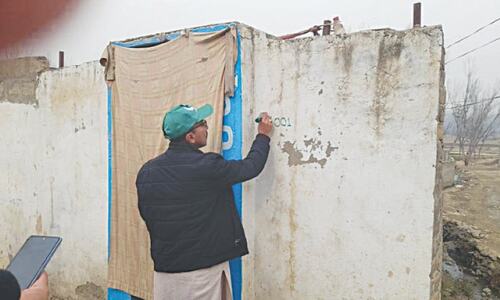BRUSSELS: Nato ministers gather for two days of talks on Wednesday expected to focus on their withdrawal from Afghanistan as a Taliban onslaught underscores the difficulties in ending the decade-old war.
The talks among foreign and defence ministers will lay the groundwork for a summit hosted by US President Barack Obama in Chicago on May 20-21 to map out a two-year pullout of 130,000 troops.
Nato leaders agreed in November 2010 to gradually hand over security to Afghan security forces by the end of 2014 but are still debating how to pay for the Afghan security forces that will carry on the fight.
Nato officials insist that the number of attacks has come down in Afghanistan but a wave of coordinated attacks on Sunday, which left 51 people dead including 36 insurgents, highlighted the resilience of Taliban militants.
“Clearly we still face security challenges,” Nato spokeswoman Oana Lungescu said on Monday. “This was not the first such attack and I do not expect it to be the last.””But such attacks don't change the transition strategy, they don't change the goal and they don't change the timeline that we all agreed to at the Lisbon summit in November 2010,” she said.
Training Afghans into a formidable force that can take on the Taliban on their own is key to a successful transition, and Nato officials say the fact they fought the Taliban alone on Sunday was proof of “impressive” progress.
Australian Prime Minister Julia Gillard said on Tuesday that her country would bring its troops home a year earlier than planned, with most soldiers withdrawn in 2013 after significant security gains over the past 18 months.
Nato expects Afghan security forces to grow to 352,000 soldiers and police officers this year but the future size is under discussion. A US plan foresees a reduction of the Afghan forces to 228,500 in 2017.
Allies are debating the price tag for the force, which is estimated to cost $4.1 billion per year. The United States is expected to pay $2.3 billion while its partners and the Afghan government would foot the rest of the bill.
The ministers will debate other thorny issues including a US-led missile shield being deployed across Europe that is irking Russia. US Secretary of State Hillary Clinton and her 27 Nato allies will hold talks with Russian Foreign Minister Sergei Lavrov on Thursday but no progress is expected on negotiations to ease Moscow's concerns about the system.
Nato had hoped to invite Russia to its Chicago summit but Russian president-elect Vladimir Putin is not expected to attend. Alliance officials say a scheduling conflict prevents him from showing up.
Despite the standoff, Nato diplomats hold out hope for progress, noting that Russians are cooperating on other projects and are still willing to talk about playing a role in the missile shield.
“Moscow's rhetoric towards Nato is more pragmatic and open to cooperation,” a diplomat said.














































Dear visitor, the comments section is undergoing an overhaul and will return soon.